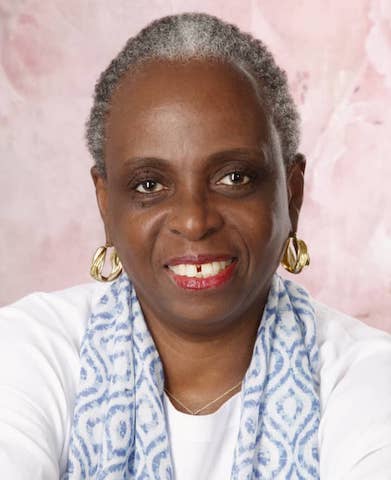Tayo Agunbiade emerges as a storyteller on a mission. Through her innovative work: ‘Untold Histories of Nigerian Women: Emerging from the Margins,’ depicting women’s experiences in colonial and contemporary Nigerian times, this veteran journalist, researcher and gender data analyst peels back layers of ancient silence, revealing the hidden narratives of Nigerian women who have long been relegated to the sidelines of history.
She speaks with JOKE KUJENYA in her quest to redraft the narrative and give voice to the unsung heroes who once shaped the destiny of this nation
Echoes from the colonial Nigeria
Aunty Tayo, as she’s fondly called and ever smiley, said her narrative begins with the quest to paint a vivid exploration of the pulsating needlepoint of 19th century colonial Lagos.
She said she was captivated by the desire to paint a picture of women’s lives entwined with colours, fabrics and bold accessories for the sacrifices they had made to make Nigeria better. However, the societal norms and political landscape of the 1930s were far from being colourful for the women who played their noble roles back then.
Tayo told the story of how her interest was sparked by a fiery debate that unfolded in the then Nigerian Daily Times between two voices of one B. Kassim and a defiant figure known only as “Humanist.”
The men’s clash had centered on the contested institution of monogamy, with Humanist challenging Kassim’s advocacy. The discourse delved into the Census of 1921, revealing an alleged reality of seven women to one man.
She said a question then lingered in her heart: “What fate awaited the ‘surplus’ women?”
Dissenting voices and societal pressures
Aunty Tayo said she recalled that public opinion echoed through the newspapers of yonder years, with editorials urging women to revert to a mythical past where they were ‘industrious, free, respected and worthy.”
The treatise even extended to critiques of women’s behaviour at social gatherings, a testament to the stringent expectations placed upon them.
Intrigued by the absence of women in the mainstream historical narratives, Tayo delved into archives, unearthing a trove of women’s roles in the nationalist movement
“Intriguingly, the call for a ‘Matrimonial College’ for women surfaced, reflecting the societal urge to mold women into prescribed roles.” Kasssim, advocating monogamy, found himself at odds with the enigmatic Humanist who urged passionately for “guarded polygamy” as a solution to surplus women.
Quest to unravel women’s hidden roles
Transitioning seamlessly into her own life story, Tayo introduces herself as a relentless researcher. Her odyssey began with a discovery in the West African Pilot headline announcing the launch of the Nigerian Women’s Party in 1944. Intrigued by the absence of women in the mainstream historical narratives, she delved further into archives, unearthing a trove of women’s roles in the nationalist movement.
Women as architects of change
Her research challenged established historical norms, revealing that women were not mere spectators but active agents of change during the 1930s and 1940s. She scrutinized primary sources, unearthing letters, petitions, and articles penned by women who fought for political rights, women’s enfranchisement, and social justice, just to list a few.
Her narrative unfolds to showcase the emergence of women-led movements such as the Nigerian Women’s Party and the Abeokuta Women’s Union, challenging the male-centric accounts of Nigeria’s anti-colonial struggles.
Notable figures like the late Oyinkan M. Abayomi, Funmilayo Ransome-Kuti and others take center stage with their quality contributions woven into the fabric of Nigeria’s history.
Tayo uncovered a rich tapestry of women’s socio-welfare organizations advocating for social justice and community development
Championing equality, suffrage and representation
Tayo Agunbuade’s narratives expand to highlight women’s quest for equality, with the Nigerian Women’s Party campaigning for girls’ schools, improved healthcare, and women’s voting rights. She showed how the women defied societal norms, and presented candidates in the 1950 municipal elections when universal adult suffrage was introduced.
She also uncovers a rich tapestry of women’s socio-welfare organizations, such as Ladies Progressive Club and the Women’s Welfare Council, advocating for social justice and community development. The women utilized newspapers as powerful tools, syndicating letters and petitions to amplify their voices and causes.
Impact on Nigerian historiography
In her pioneering work, Aunty Tayo brings to light the narratives of previously marginalized women, challenging the prevailing male-dominated historical discourse, using her book to serve as a legacy for non-violent activism and displaying the unwavering spirit of the average Nigerian woman.
A fellow woman, Senator Abiodun Olujimi, in a foreword to one of Tayo’s books, commends her as “dismantling the historical silencing of women; adding that the book, ‘Untold Histories of Nigerian Women,’ is not just a book but a call to action, urging further exploration of archived materials to unveil more hidden stories to secure women’s rightful place in Nigeria’s vibrant history.
Balancing advocacy and family
Tayo Agunbiade, a gentle and amiable woman of remarkable intellect and unwavering determination, not only gracefully navigates the realms of historical exploration and gender advocacy; she also strongly embraces the roles of a devoted wife and nurturing mother within her household.


